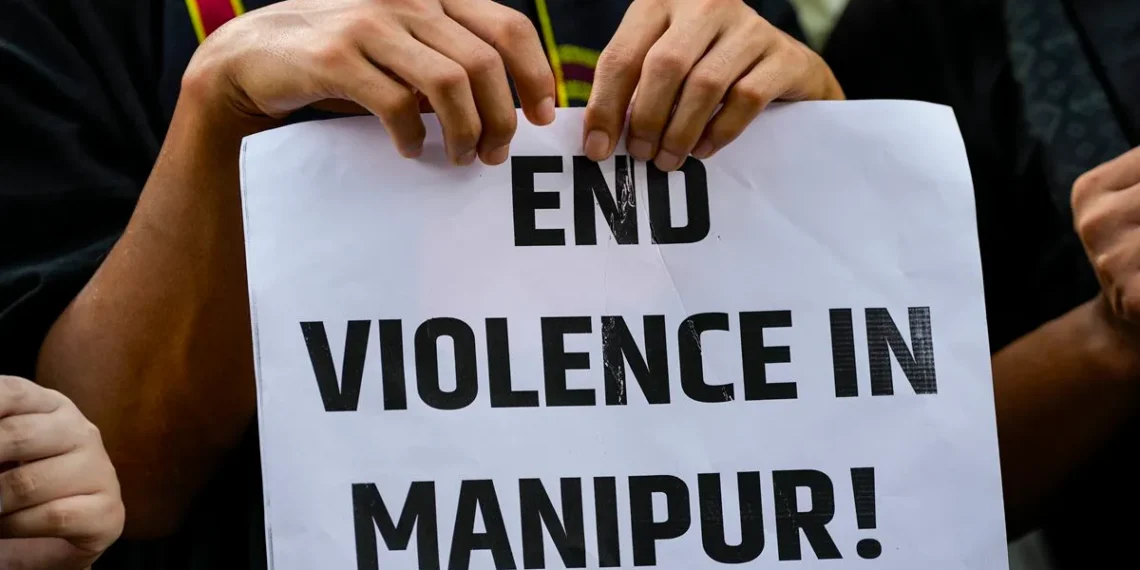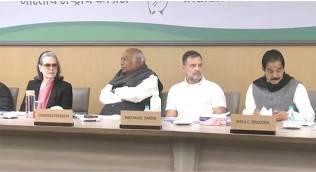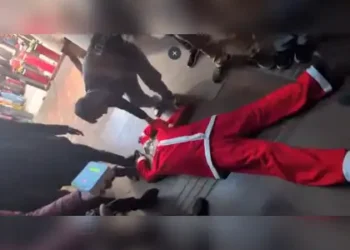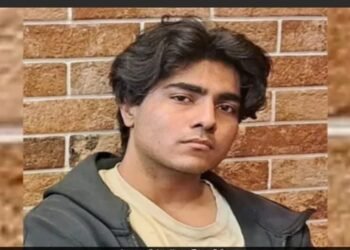Manipur’s civil society stands divided over the MHA’s latest peace initiative in New Delhi. Imphal Valley groups AMUCO and FOCS back the talks as a step toward stability, yet COCOMI rejects them as a shallow cover for a complex crisis, demanding action on narco-terrorism and territorial integrity instead.
BY PC Bureau
The Ministry of Home Affairs (MHA) peace talks, held in New Delhi on April 5, 2025, between representatives of the Kuki-Zo-Hmar and Meitei communities, have elicited sharply divergent reactions from Meitie stakeholders in Manipur. Imphal Valley-based Meitei groups, including the All Manipur United Clubs Organisation (AMUCO) and the Federation of Civil Society Organisations (FOCS), disclosed on Tuesday their agreement to the six-point peace framework put forward by the Ministry of Home Affairs. However, their stance contrasted with the position of the influential Coordinating Committee on Manipur Integrity (COCOMI). COCOMI had boycotted the talks, condemning them as a “carefully scripted farce” and accusing the MHA of misrepresenting the conflict’s intricate root causes.
AMUCO and FOCS, represented by a six-member Meitei delegation, expressed hope regarding the initiative. In a press briefing, AMUCO President Nando Luwang stated that the groups received verbal invitations from the MHA and participated in the talks without preconditions. “ We raised the people’s concerns and focused on practical solutions,” he said.
Facilitated by MHA official A.K. Mishra, the meeting prioritized constructive engagement over confrontation. Following thorough discussions, the ministry presented a six-point resolution, which AMUCO and FOCS approved after review, but the Kuki-Zo-Hmar representative have yet to endorse it, Luwang said.
Luwang noted that the resolution called on civil society to urge both communities to reject violence, while promising that longstanding issues would be tackled through ongoing dialogue. He also mentioned the MHA’s indication of future talks to build a sustainable resolution.
ALSO READ: Decoding the Liangmai-Kuki Clash: The Interplay of History & Identity
FOCS acting president BM Shah reinforced Luwang’s views but stressed an unwavering condition: “We support peace efforts, but Manipur’s territorial integrity is non-negotiable.”
Imphal, Manipur: After April 5 tripartite talks in Delhi, AMUCO and FOCS reaffirmed commitment to peace and Manipur’s unity. The MHA-led meeting with Meitei, Kuki-Zo, and Zomi representatives focused on ending violence, aiding displaced persons, and development. Both groups… pic.twitter.com/n89ZC3gyIF
— IANS (@ians_india) April 7, 2025
The Kuki-Zo Council, with a nine-member delegation, also took part, suggesting a cautious openness to dialogue despite deep ethnic divisions. The six-point plan, distributed to all participants, is viewed as an early blueprint to restore stability in a state ravaged by violence since 2023.
COCOMI’s outright dismissal of the talks, however, dims these prospects. In a blistering statement, the group had labeled the Delhi meeting an “orchestrated spectacle” crafted to support Union Home Minister Amit Shah’s parliamentary depiction of the unrest as a mere ethnic dispute between Meiteis and Kukis.
Refusing to participate, COCOMI had argued that this framing overlooks a broader crisis, which it attributes to a state-supported proxy war involving Chin-Kuki narco-terrorist networks, illegal immigration, and separatist ambitions. “This so-called peace effort is a staged act to uphold a misleading narrative,” COCOMI declared, highlighting the central government’s alleged bias since the conflict began.
ALSO READ: Naga Students Demand AFSPA Repeal, Target Indian Army
Beyond criticism, COCOMI accused the government of empowering foreign-origin armed groups under the Suspension of Operations (SoO) Agreement, effective since 2005. The committee claims these factions, unchecked by authorities, dominate hill regions, undermining peace and governance. In earlier interactions, including meetings in Imphal, COCOMI says it cautioned the MHA that it is seen not as an impartial facilitator but as a conflict participant.
To resolve the crisis effectively, COCOMI listed demands: rigorous enforcement of law and order, disarmament of SoO groups, prosecution of militants responsible for territorial seizures and highway disruptions, cancellation of the SoO agreement, restoration of unrestricted movement statewide, and accountability for those obstructing peace. It also urged acknowledgment of the conflict’s true drivers—illegal immigration, narco-terrorism, and separatism—and direct talks with SoO leaders instead of civilian intermediaries. “Peace talks are futile without a terror-free environment,” COCOMI maintained, asserting that civil society cannot disarm militants or enforce law—a duty it assigns solely to the Government of India.
With Manipur at a pivotal juncture, the polarized stances of its civil society groups underscore the roadblocks to reconciliation. AMUCO and FOCS view the MHA’s efforts as a promising start, but COCOMI’s fierce resistance reveals the profound distrust and lingering tensions that continue to stall progress in the conflict-ridden state













